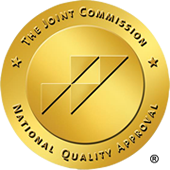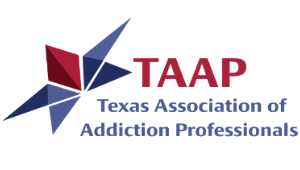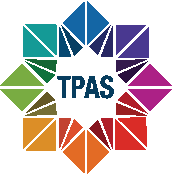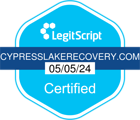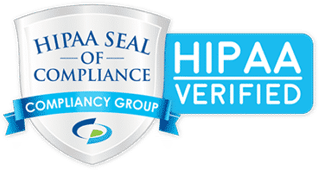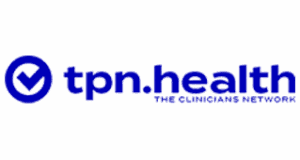Blue Cross Blue Shield Addiction Treatment Coverage in Texas
While those struggling with substance abuse and addiction often feel as though there is no way to break the cycle, it is important to remember that help is available and recovery is possible. But for some, barriers may still exist after the decision to get help has been made (such as travel or financial costs).
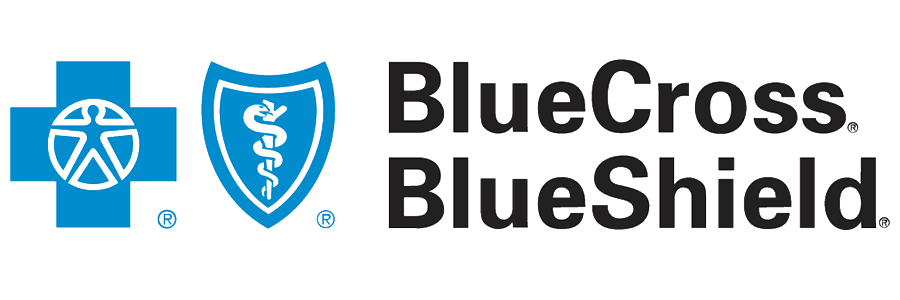
Despite the assumption that treatment and rehab programs are unaffordable for the average person, there’s good news. Many healthy insurance companies, such as Blue Cross Blue Shield (BCBS), cover the cost of substance use disorder treatment. While the type of treatment covered and the coverage amount can vary based on insurance plans and providers, insurance can often make the cost of treatment more affordable.
At Cypress Lake Recovery, we believe that financial limitations should never prevent someone from getting the life-saving care they need. That’s why, as a proud in-network provider with Blue Cross Blue Shield, we are committed to making our treatment services both accessible and affordable. Whether you’re seeking detox, inpatient rehab, outpatient support, or dual diagnosis care, we can help you navigate your insurance and begin your healing journey with confidence.
If you or a loved one has Blue Cross Blue Shield and is in need of addiction treatment, keep reading to learn more about Blue Cross Blue Shield coverage for drug rehab, including what services are typically covered and how you or your loved one can use their BCBS plan to get the help they need at Cypress Lake.
Does Blue Cross Blue Shield Cover Rehab?
Yes. In most cases, Blue Cross Blue Shield covers rehab for substance use disorders, including alcohol, opioids, and other addictive substances. In addition, thanks to federal regulations like the Affordable Care Act (ACA) and Mental Health Parity and Addiction Equity Act (MHPAEA), BCBS plans also offer mental health treatment in addition to substance abuse treatment at the same level as other medical benefits.
Just as with other medical benefits, the specifics of the coverage (such as the amount covered and types of services covered) can vary based on the plan and provider network. This is particularly true when it comes to a company like BCBS, which acts as the umbrella company for state and region-specific carriers.
In general, Blue Cross Blue Shield typically covers:
- Medical detox
- Inpatient treatment
- Partial Hospitalization Programs (PHP)
- Intensive Outpatient Programs (IOP)
- Standard outpatient treatment
- Dual diagnosis treatment
- Medication-Assisted Treatment (MAT)
- Aftercare services and relapse prevention
If you or a loved one isn’t sure what is and isn’t covered with your BCBS plan, you can reach out to your insurance representative or fill out our easy-to-use insurance verification form. We will take a look at your plan and see what is and isn’t covered. Should you be responsible for any out of pocket expenses, we will also let you know how much before you start treatment so there are no surprise bills at the end.
Contact Our Admissions Team Today
Treatment Options for Addiction Recovery
Detoxing is a very crucial first step in the overall treatment and recovery process. Medically-assisted detox rids the body of the harmful substances that are in it, so the healing process can begin. For many substances of abuse, such as alcohol, benzodiazepines, and opioids, the detox process comes with dangerous and even potentially life-threatening withdrawal symptoms. This makes medical assistance and support crucial in the process, since professionals can provide essential care and monitoring but also access to medications that can alleviate or treat withdrawal symptoms (in addition to any potential complications).
Blue Cross Blue Shield typically covers medical detox services when deemed necessary. This means that with your BCBS addiction treatment plan, you can undergo medical detox at Cypress Lake Recovery at little to no cost to you (in most cases).
Inpatient treatment provides a highly structured environment to focus on addiction treatment, free of any outside influences, temptations, or distractions. This level of care is ideal for those with moderate to severe addiction or a history of relapse.
Our residential rehab program includes:
- Individual and group therapy
- Nutritional support and fitness activities
- Psychiatric care for co-occurring disorders
- Relapse prevention and life skills training
The duration of inpatient care may vary, and is determined based on both clinical assessment and insurance guidelines.
Partial hospitalization programs are often used as a bridge between inpatient and outpatient care. Those participating in a PHP come to the facility during the day for various therapy and treatment sessions, then return to their home or a sober living facility at night. PHPs offer the structure of inpatient treatment while providing the flexibility and independence of an outpatient program. Many BCBS policies cover PHP as either a primary treatment option or a step-down level of care following inpatient treatment.
Intensive outpatient treatment is ideal for someone who is ready to resume their daily activities and go back to their “normal” life, while also maintaining the strong therapeutic support that treatment can offer. BCBS coverage often includes IOPs as a cost-effective way to provide ongoing care for those in recovery.
This is essential for ensuring positive outcomes for people exiting a treatment program for addiction or specialized mental health treatment. Ongoing support after intensive treatment helps the person sustain the lessons they took in during their time of treatment. Aftercare resources can also help the person connect to local support groups, therapists that specialize in addiction, and other assets to aid in avoiding relapse.
Testimonials
![]()
![]()
![]()
![]()
![]()
Regina
I am so happy that I chose Cypress to begin my recovery. I have suffered for years from depression, anxiety, panic disorder, and PTSD. The programs that are offered here at Cypress have been truly phenomenal in helping me recover. I also appreciated the professional staff that are here on duty 24/7, which helps create a safe environment. Cypress Lake Recovery uses effective “one on one” methods that meet each person’s individual needs because they evaluate and have a better understanding of your personal traumatic experiences. Thanks Sabino, I am truly grateful to you and the Cypress family.
![]()
![]()
![]()
![]()
![]()
J.A.
A beautiful facility! Staff sets the tone and kindness that residents easily follow. Thank you, Cypress Lake Recovery!
![]()
![]()
![]()
![]()
![]()
Pamela
The program at Cypress Lake Recovery works! I emerged from an accumulation of unrecognized emotions, issues of trust, and unresolved grief and loss. 35-days of effective integration of customized quality therapy reconnected my mind, body, spirit, and I am worth it! I had masked emotions and hurtful events for decades with alcohol. At Cypress Lake Recovery I safely focused deep within to unleash harmful secrets and self-degradation. Tools of recovery were practiced, not just presented. Integrative therapies were tailored to my circumstances, thus were effective. This residential program is like no other. For me, Cypress Lake Recovery delivered what was professed. I am forever grateful for this gift of healing.
![]()
![]()
![]()
![]()
![]()
Mike
Life changing experience. Wonderful staff. Wonderful program. Thanks for everything!
![]()
![]()
![]()
![]()
![]()
Darcy
It was great to begin my recovery in a group environment with so many knowledgeable nurses, therapists, BHT’s, and others around for support. The equine therapy, challenge course, family week, and daily therapies all work together seamlessly, allowing me to leave Sabino as a healthier and stronger person!

Therapy Options for Addiction Recovery
As the name implies, individual therapy is conducted in a one-on-one setting. Individual therapy can help those in treatment explore the root causes of their addiction while also developing healthy coping mechanisms that are in line with their recovery goals.
Common examples of individual therapy include:
- Cognitive Behavioral Therapy (CBT)
- Dialectical Behavior Therapy (DBT)
- Acceptance and Commitment Therapy (ACT)
- Motivational Interviewing (MI)
Led by licensed clinicians, group therapy fosters peer support and shared healing experiences. Topics range from relapse prevention to emotional regulation and communication skills. Groups may or may not be based around a 12-step model of addiction recovery
The family dynamic is an important one when it comes to addiction recovery. Family therapy can help repair strained relationships, rebuild trust, and create a supportive environment for recovery. BCBS may cover family therapy sessions, especially when included in a comprehensive treatment plan.
It’s not uncommon for someone suffering from a substance use disorder to also suffer from a mental health condition. Often, people struggling with things such as depression, anxiety, PTSD, or bipolar disorder turn to drugs or alcohol as a form of self-medication, resulting in dependency and addiction. Dual diagnosis treatment is designed to address both conditions simultaneously in order to increase the chances of long-term recovery.
Medication-Assisted Treatment (MAT) combines behavioral therapy with medications that help reduce cravings and prevent relapse. Most BCBS plans provide coverage for these medications and the accompanying therapy services.
The Importance of Verifying Insurance Coverage for Addiction Treatment
Each BCBS plan is different and may feature different coverage options. Before beginning treatment of any kind, it is important to review your specific plan benefits so you know what is and isn’t covered. It’s important to know of any out-of-pocket expenses you may be responsible for before beginning treatment, so you won’t be surprised and so your recovery can be your main focus.
Understanding and verifying insurance coverage can also help in the following ways:
- Speed Up Admissions: Verifying coverage in advance makes the admissions process faster and more efficient.
- Avoid Denials: Some insurance plans require pre-authorization prior to treatment. If this is a requirement of your plan, we can help you secure approval so you aren’t caught off guard.
- Minimize Out-of-Pocket Expenses: Some people may assume that their insurance covers their treatment in full, only to be surprised when they get a bill at the end. Knowing what is and isn’t can help you make informed decisions about your care.
- Confirm In-Network Status: Verifying your insurance with the treatment facility allows you to confirm that the facility is an in-network facility. In the case of Cypress Lake, we are in-network with BCBS, which usually means lower costs and better benefits.
- Understand Deductibles and Copays: Since every coverage plan is different, we will walk you through the fine print so you know what to expect.
Cypress Lake Recovery is In-Network with Blue Cross Blue Shield Drug Rehab
For more information about our treatment services or to verify your benefits, contact us today.
Nationally Recognized & Accredited
